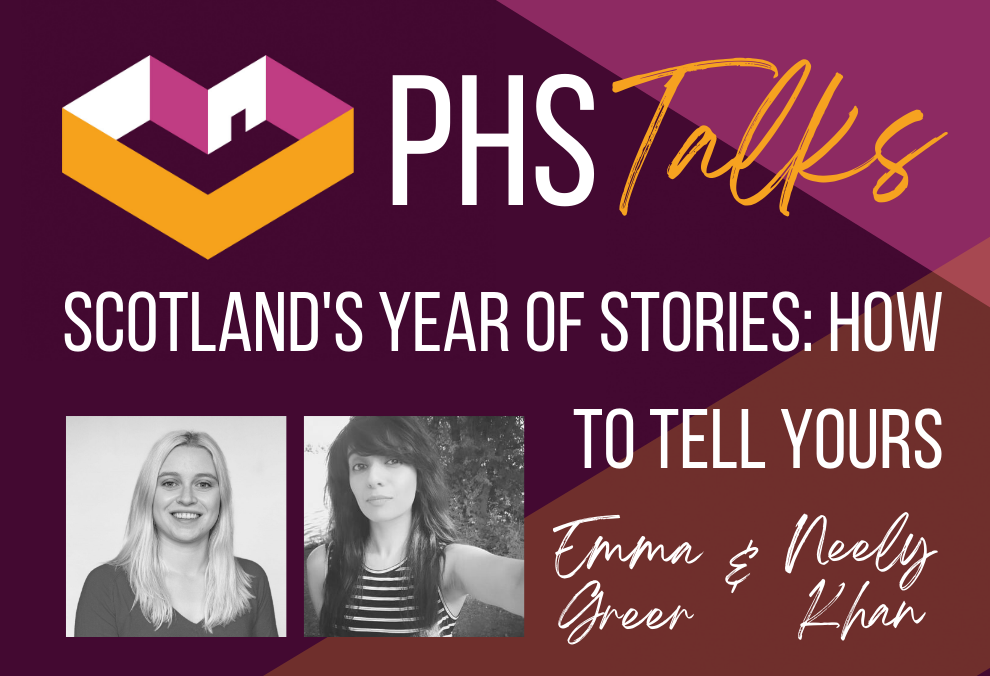How to Tell Your Story to Bring in More Bookings

Storytelling is a powerful tool – if you’re not using it yet, you should be! In our February 2022 webinar, expert writers Neely Khan and Emma Greer joined PHS Talks to share their advice on how you can use your story as part of your marketing strategy.
This ties in with Visit Scotland’s theme of the year, Scotland’s Year of Stories, which aims to highlight the rich cultural and historical narratives that make Scotland such an interesting and unique place to visit.
First to speak was Neely Khan, who specialises in story-led content. Outside of her work writing for the travel and short-term let sector, she has a wide range of experiences writing fiction stories and poetry, with her first collection of short stories due for publication in April 2022. She has a really thorough grasp of the psychology of storytelling - which is invaluable when it comes to marketing!
Neely has her own business, Neely There, which helps businesses in the hospitality and leisure industries boost their content creation. You can also find her on LinkedIn.
Neely’s main insights:
1. Know the difference between personal storytelling and corporate storytelling.
- Personal storytelling is what we are most familiar with – this is when people talk about themselves and their experiences. This can be used to make a connection with your audience and gain customer trust.
- Corporate storytelling, on the other hand, is when you place your guests/audience at the heart of the story you are telling. This is the most commercially impactful way of using storytelling. Great stories have heroes, tensions, and solutions - think of your guest as the ‘hero’ of the story, while the ‘solution’ is the product/service you offer (and you are the aid, the robin to their batman so to speak!)
2. Understand the psychology of storytelling.
- Stories wrap facts and information in something a little extra, communicating things that aren’t necessarily interesting by making them more exciting! In a short term lets context, this could be used to convey the features of your accommodation, or important statistics. The more emotionally engaging stories are, the more memorable they become. This is because at their heart, stories aren’t about words, but feelings. Tension and release – or ups and downs – release different chemicals in the body such as cortisol and endorphins; this creates the emotional connection, which in turn makes an audience ready to act (i.e., book a stay!)
Next we heard from Emma Greer. Emma worked for over three years as the domestic Marketing Executive for award-winning tour operator McKinley Kidd, before starting her own business. She now works to help small businesses and entrepreneurs to refine their target audience and convert them into customers through the power of words.
You can get in touch with Emma through her copywriting business, Magnetic Copy. She is also on LinkedIn.
Emma’s 4 top tips for accommodation owners:
1. Show your expertise.
- It’s really important that you showcase your knowledge - travellers want local insight, to engage with local people, and to experience local culture. By giving people the kind of information only you would know – for example, the best place to get a cup of coffee, or an amazing viewpoint to see the sunset, you build a picture in their mind of what it would be like to stay with you.
2. Take inspiration from the world around you.
- ‘Scotland’s Year of Stories’ goes way beyond the amazing literature written in and inspired by Scotland. Think ghost stories, filming locations, ancient ruins, local heritage, folklore, and legends – there is so much to spark you imagination! There are different ways you can engage with these, from talking about them as points of interest to partnering with local events. Visit Scotland also has an excellent and extensive photo library you can use to show off your area at zero cost.
- Look closer to home too. You can talk about the things that are in your accommodation – anything that is slightly different, that other accommodation suppliers might not have, is worth sharing. If you have work by local artists, or cater your breakfasts with food from local suppliers, make sure your potential guest knows. This helps build the picture; the more detail and creative inspiration, the more likely your readers will turn into guests
3. Focus on emotion, not rationale.
- Every decision we make is made emotionally first, then justified using logic. This means that the key to attracting guests is capturing their hearts. For example: for a bedroom with a sea view, talk about watching the crashing waves, or the sunset over the water. Evoking feelings of peace and contentment will create that initial emotional connection.
4. Use client testimonials.
- The best way to tell your story is through people who have already lived it. Client testimonials really help to get your reader to picture themselves as the guest in your accommodation, as they encourage your reader to see themselves in the place of your past clients. People also relate most to those who are most like them – in this context, fellow guests! Having extra voices confirming your promise that those who come to stay will have a wonderful time also reassures potential guests that you are excellent accommodation providers.
You can find the full video recording of the webinar here. Be sure to check out our other webinars too.

